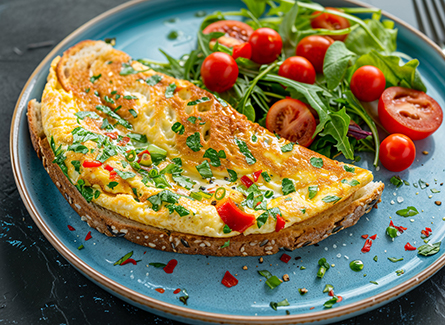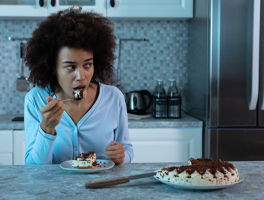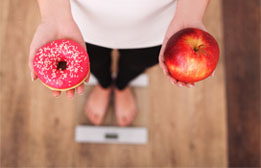
Reaching your goal weight can be a long process and take even longer when you follow bad advice. There’s no shortage of diet tips, but the most popular ones may not be words of wisdom. How do you tell good info from bad? We can help.
-
Bad Advice: Don’t eat after 8 p.m. The idea behind this tip is that when you eat late at night, you won’t burn off the calories while you sleep.
- Better Advice: Your body uses calories the same way, regardless of when you consume them. However, people who eat late at night tend to overeat and make unhealthy food choices. So, if you have a habit of chomping chips or munching M&Ms while watching late-night TV, try cutting the snack out.
-
Bad Advice: Follow a low-fat diet to lose weight. The theory here is eating only low-fat foods will help you lose weight.
-
Better Advice: In truth, low-fat diets can actually cause you to gain weight. Many low-fat foods have added sugar and sodium to make them taste good. Besides, your body needs healthy fat. Salmon, nuts, avocados, olives, lean red meat and certain oils all have healthy fat, not to mention health benefits. Foods with healthy fat can also make you feel fuller so you eat less. Of course, avoid saturated and trans fats, which pop up in foods like butter, high-fat
dairy
and processed foods.
-
Better Advice: In truth, low-fat diets can actually cause you to gain weight. Many low-fat foods have added sugar and sodium to make them taste good. Besides, your body needs healthy fat. Salmon, nuts, avocados, olives, lean red meat and certain oils all have healthy fat, not to mention health benefits. Foods with healthy fat can also make you feel fuller so you eat less. Of course, avoid saturated and trans fats, which pop up in foods like butter, high-fat
-
Bad Advice: Drinking more water takes off the weight. Drinking a glass or two of water before each meal is supposed to make you feel full so you eat less.
- Better Advice: The truth is, drinking water doesn’t equate to weight loss. That’s not to suggest you should stop altogether. Keeping your body hydrated is a good habit to develop for general health reasons. If high-calories beverages are your go-to choice, switching to water will definitely help you drop some pounds. But, drinking water without combining it with exercise and healthy eating won’t move the numbers on the scale.
-
Bad Advice: Carbs are evil. This misinformation has been around for years. It’s based on the idea that your body turns carbs to sugars and stores them as fat.
-
Better Advice: Eating carbs like bread, pasta and potatoes
doesn’t
make you gain weight. It’s the amount you eat and the trimmings you add (think: butter, alfredo sauce, sour cream) that pack on the pounds. Pasta is fine if you stick with one serving versus the two or three that people typically eat. Potatoes can be a good source of fiber, vitamin
C
and potassium as long as you don’t fry them or add toppings. Whole-grain
breads
can be a part of a
heart healthy
diet if you enjoy one serving.
-
Better Advice: Eating carbs like bread, pasta and potatoes
“There are no
short cuts
,” Dr. Ancy, opens new tab said. “Fad diets can work short term, but true weight loss and nutrition requires consistency and sticking to healthy eating habits: fresh vegetables and fruits, whole grains, high fiber foods, good fats, lean meats and fish, and limited portions of processed foods.”
Weight loss is a learning process. Our A Better You, opens new tab wellness program expands your knowledge of weight loss and the exercises and tools that can help you reach your goal. Join us!
Related Articles

November 7, 2024
10000 Steps Good Enough
How many steps did you log today? It’s a popular question, and the gold standard answer is 10,000. Yet, depending on your health goals, you may need to pick up the pace.
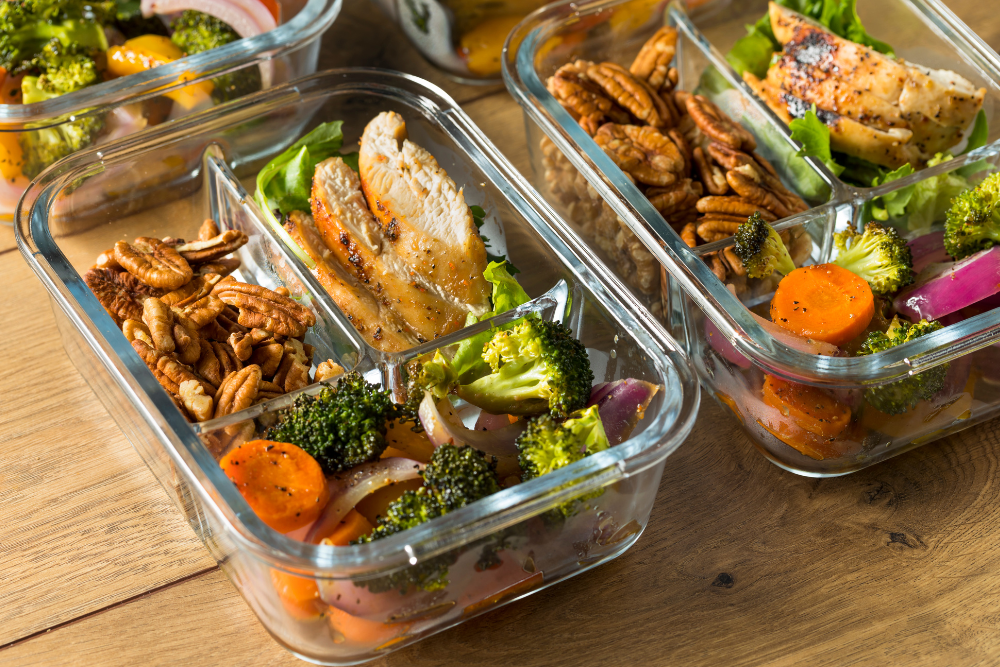
June 1, 2019
5 Day Meal Prep
Who says eating healthy has to be difficult? One of our Registered Dietitians shows us how easy it can be to prep lunches for a busy week.

June 1, 2019
5 Foods With Health Benefits
Dark ChocolateBoost your mood and your memory (think antioxidants) by savoring dark chocolate. It may also help your heart health. Just 1 oz. is all it takes...

December 9, 2019
5 Free Indulgences
Are you ready for the hubbub of the holidays? The season’s festivities are always fun, but they can also wear you down. If your holiday spirit needs rechargi...

June 1, 2019
5 Minutes to a Happier You
Feeling stressed, angry or anxious? Head to the great outdoors. A new study has found that a five-minute walk can work wonders for your mood.The more natural...
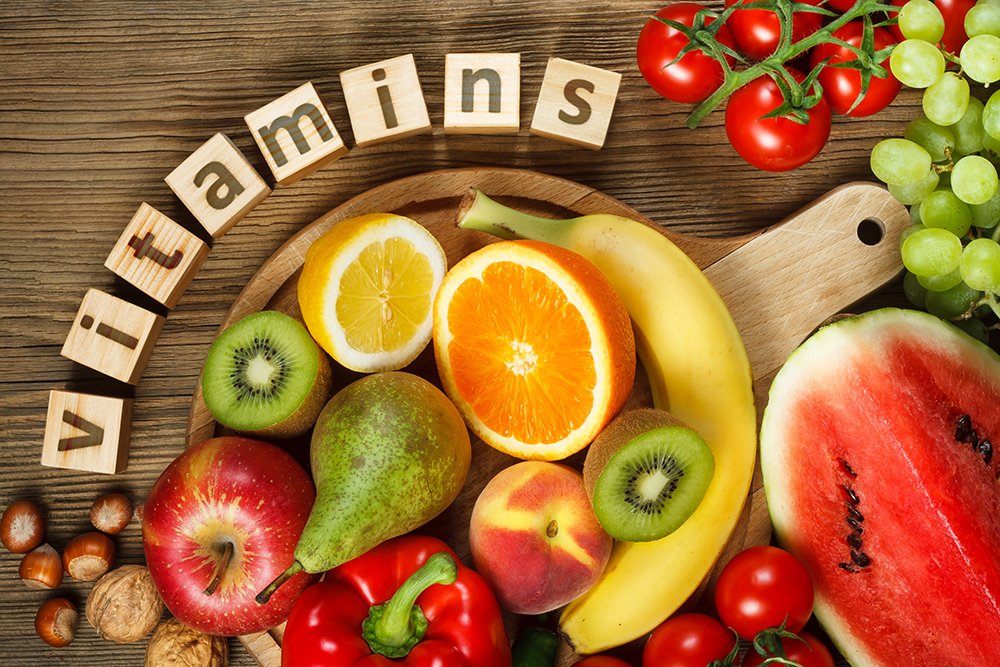
July 27, 2022
5 Must Have Nutrients
Vitamins and minerals do a body good, but who has time to figure out which foods offer what benefits? This short list of five essential nutrients, opens new ...
